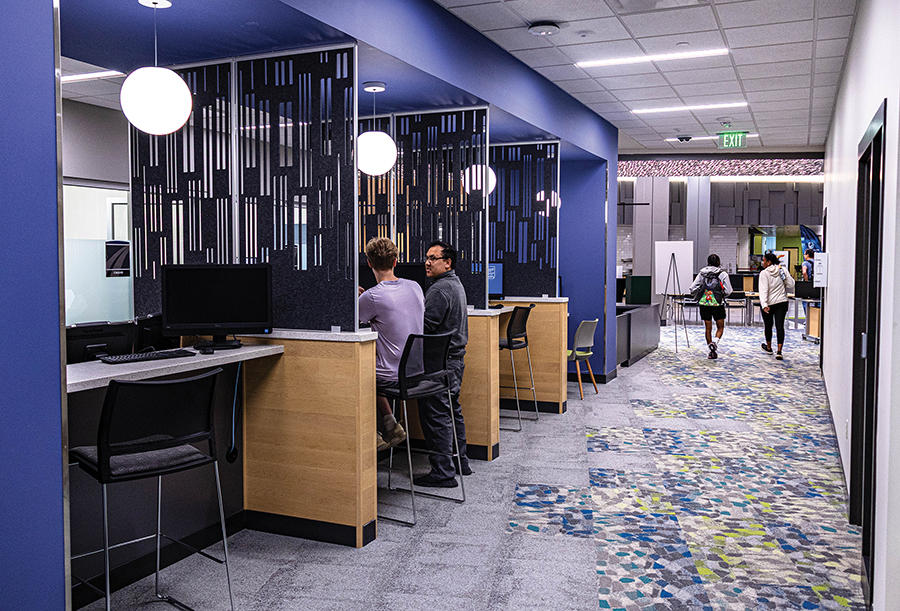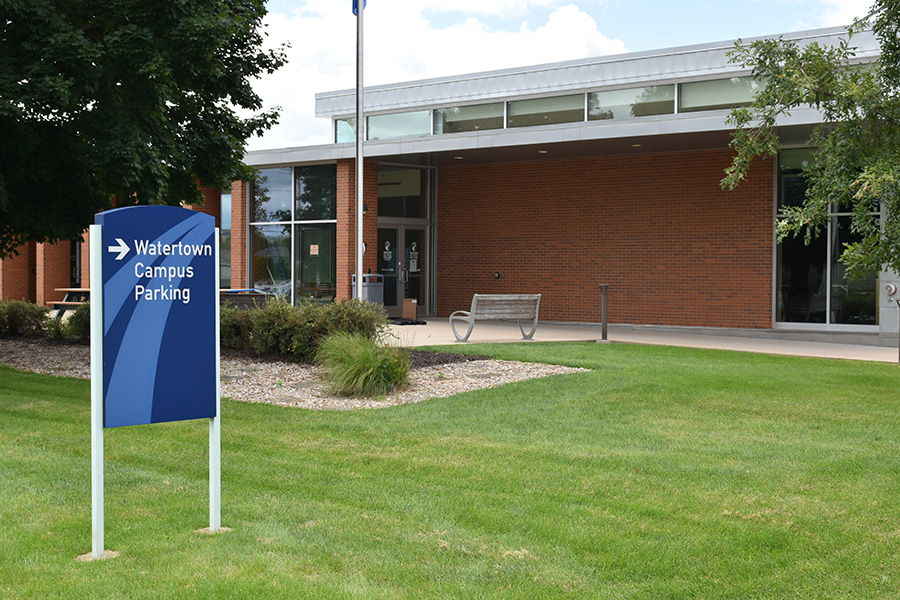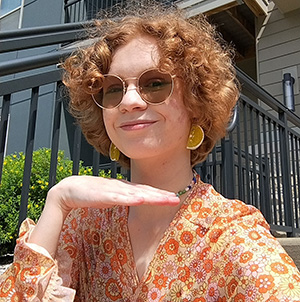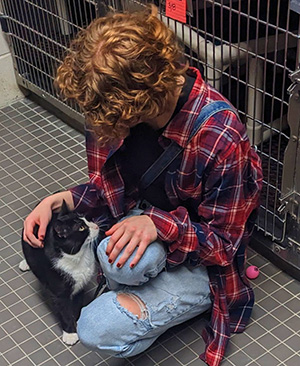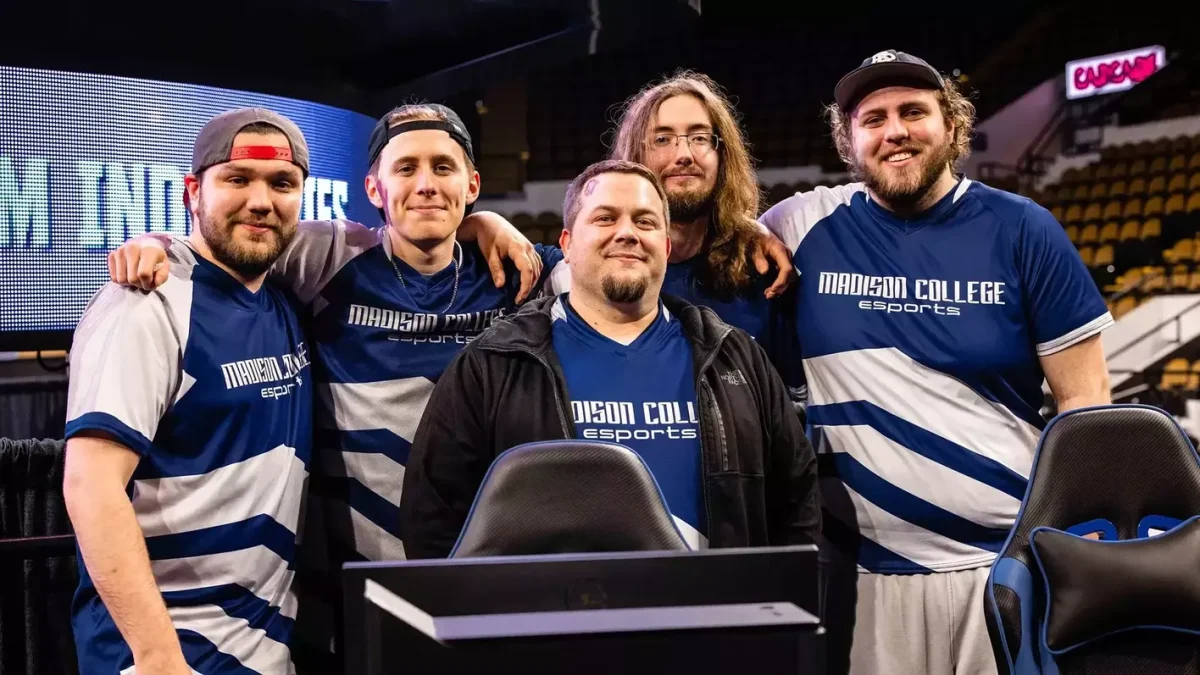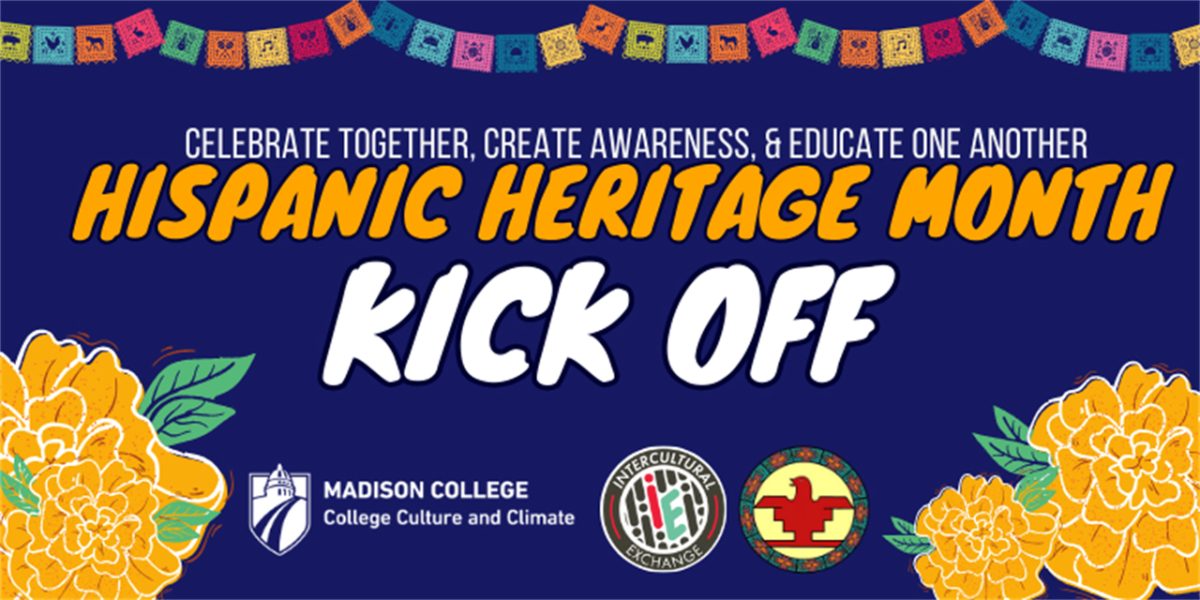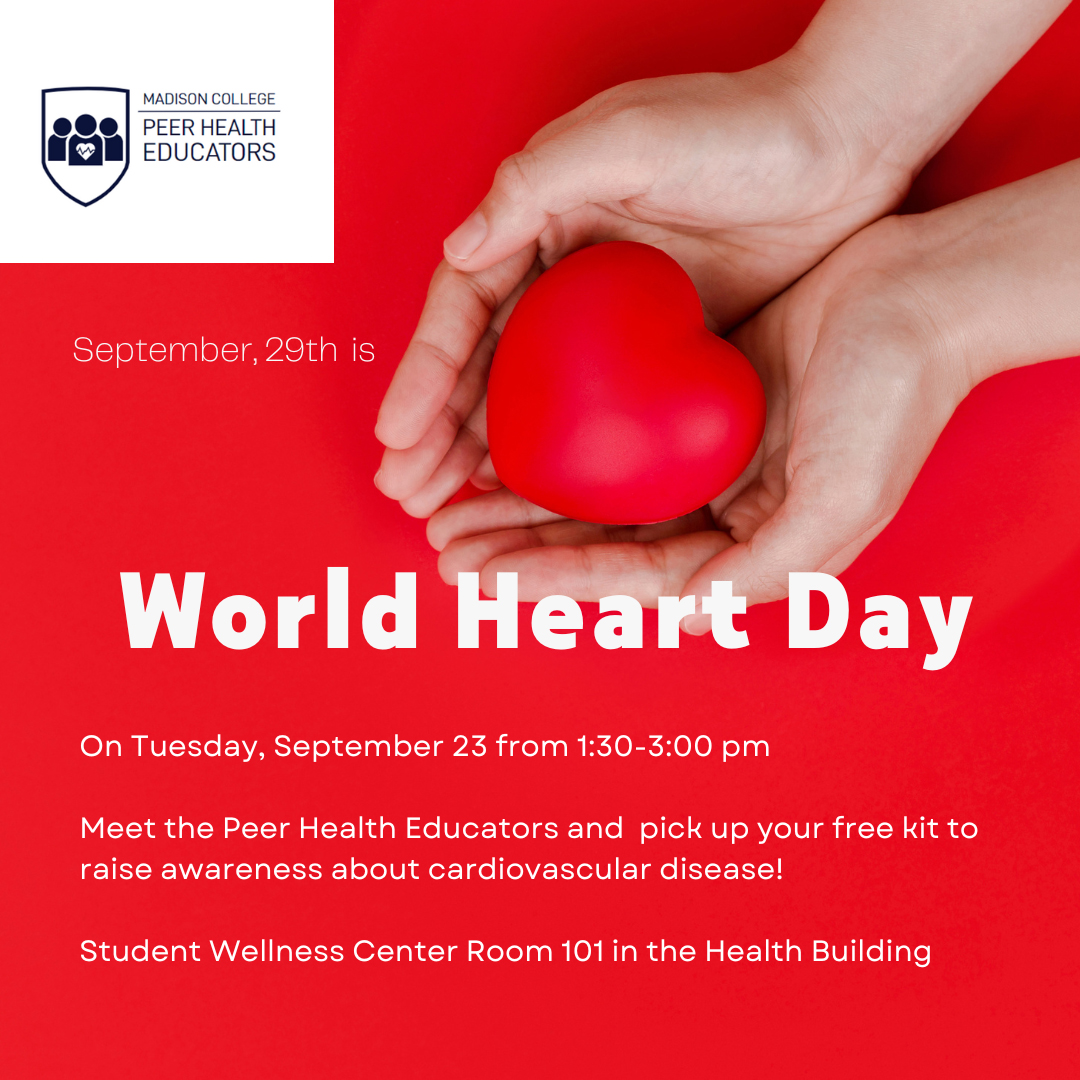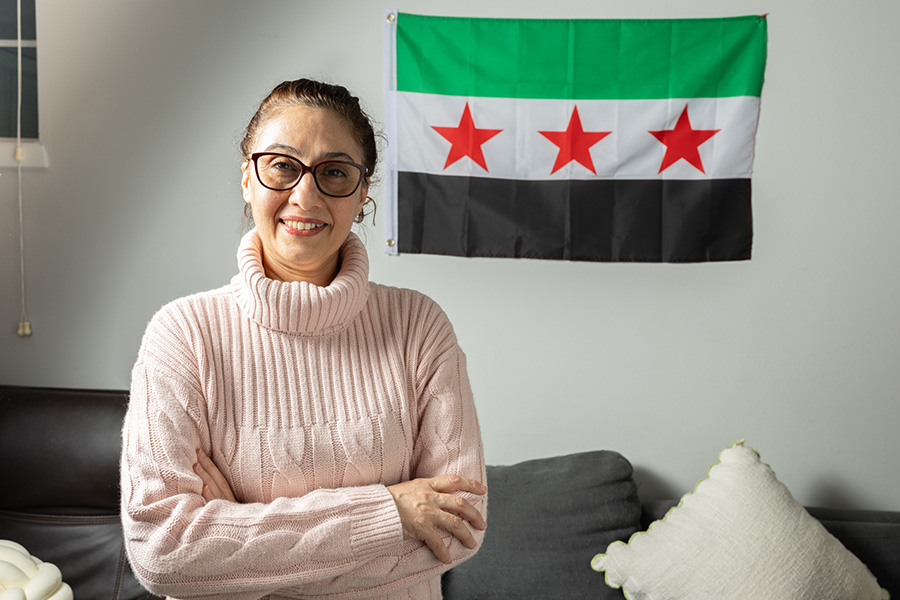As texts go, it was plain and simple. Just three words. “Assad is gone.”
Last December, Iman Alsharid, a Madison College alum, received that text from her husband, Chadi Alhaj Kadour. It was about the fall of former Syrian president Bashar al-Assad, whose family ruled Syria for 53 years. His fall followed a 12-year civil war led by a coalition of opposition groups, including Hay’at Tahrir al-Sham.
The text evoked a wide range of feelings for Alsharid, from happiness and excitement to sadness and guilt.
“We thought the revolution was dead. Assad regime would stay forever. People gave up. We thought this day would never come,” she said.
Most assumed the Assad regime would continue for decades. It began with his father, Hafez al-Assad, who ruled from 1971 until his death in 2000. Then his son Bashar took over. Most believed Bashar would stay in power.
“You cannot imagine. They’re dancing in their city. They feel alive,” Alsharid continued. “It was my father’s dream. It has been going for 55 years.”
Born in 1972, Alsharid is part of a generation that has never known freedom or any other way of life. It’s a generation that grew up brainwashed and bombarded by propaganda, first from Hafez and later Bashar. Politics, opinions or any other form of expression was suppressed.
Under the Madison College Honors Program, Alsharid has written a book titled “Finding Home in Two Worlds: A Syrian Mother’s Story.” The book covers her experiences as a mother in Syria and America and offers glimpses into a life of agony, desperation, sorrow and hope.
“When I was a little girl ready to start school, my father’s reminders echoed with a sense of urgency, instilling in me the vital necessity of maintaining absolute silence, withholding even a whisper from others. His words carried the weight of fear, emphasizing that the Assad government extended everywhere, their presence ubiquitous and merciless,” she wrote.
For Alsharid, the two weeks leading up to Assad’s fall marked a blurring cascade of events, triggering painful memories.
After Aleppo fell, posters of Assad were destroyed as rebel forces swept across the country. Alsharid grew up surrounded by these posters of Assad, and they were constant, inescapable and plastered everywhere: on signposts, cars, restaurant walls, schools and buildings reduced to rubble.
“Assad’s image was everywhere in my school, classroom and hallways. His statues are everywhere. Every year, we are chanting for the regime. They brainwashed all the students,” she said.
Watching the events unfold on television reminded her of her emotional and terrifying barriers, like the checkpoints.
Twelve years ago, she was seated in a car. Her husband was behind the wheel, Alsharid was beside him, and their three children were in the back. The vehicle abruptly stopped at a checkpoint, creating the all-too-familiar feeling of fear, anxiety and the unknown.
Syrian checkpoints are makeshift huts built with concrete clocks and hardened steel, and they had encountered one of Assad’s hundreds of checkpoints, finding themselves at the mercy of his guards.
Checkpoints can range from soldiers scrutinizing identification and travel documents to instilling fear and trepidation to beating and, more often, killing civilians. “They shoot you. They don’t care,” she said.
In Alsharid’s case, the soldiers stopped the vehicle, and her husband rolled down the window, only to be hauled out of his car and taken away for interrogation. Minutes stretched, and she couldn’t see her husband in the darkness, fearing the worst.
Hoping to intimidate the family, two soldiers approached the car with rifles and pointed flashlights at the children, including her sleeping one-year-old son. Later, after Chadi was questioned, he returned to the car, and they drove off.
They soon realized that if they wanted to protect their children, they would have to leave their country.
Alsharid remembered a decades-old green card application started by a relative for her to study in America. She decided to complete the application and include her husband and children.
The civil war had shut down the American Council, so Alsharid was left to devise another plan. With the kindness of a New York-based Jordanian lawyer and trips to Jordan and back to Syria, she endured humiliating interrogation and weeks of uncertainty waiting for her green card.
“Can you imagine this roller coaster? It was like, I just want to get my kids out of there because the shooting was getting closer and closer to our house, and it was horrible,” Alsharid said.
After two weeks, they received their green cards and passports, but the government shuttered the Damascus airport, forcing them to fly to Doha, Qatar. After six thousand miles, they landed in New York and, later, Madison.
This is the part of the story where a reader might rightfully expect a happy ending. While they were safe from violence and tyranny, living in America presented different psychological roadblocks.
By the time they arrived in Madison unless you count the money from the sale of their car, her family had nothing. They embarked on new challenges, some logistical: locating schools for their three children and finding new jobs for themselves.
However, like any Muslim immigrant, Alsharid learned she needed to push harder and dig deeper than others to prove her worth with many issues to climb: language, customs, food and education — but also overcoming hate speech, violence and built-in racism.
In her book, she describes an unsettling experience at a grocery store where she felt followed because of her head scarf. A man trailed her, glaring during their encounters. After she paid and exited, he shouted, “Go back to your garbage country!”
He didn’t stop there. “Go back to your sh__ hole of a country!”
Shaken, she walked to her car without looking back and made it home safely. The next day, her family, concerned for her safety, encouraged her to stop wearing the hijab. Despite its significance in her life, she ultimately agreed.
L. David Hansen, chair of the Journalism Department at Madison College, said Alsharid’s commitment to learning and communicating about her homeland inspires other students.
“Iman greatly impacted other students through her kindness, compassion and courage,” said Hansen, her honors supervising faculty member. “Students who got to know Iman learned about the challenges in her life and how she overcame them with hope and persistence.”
With Syria free, Alsharid knows her country is still in transition, but she’s hopeful of unification.
Her children, the same children who had a front-row seat to checkpoint brutality, are now thriving. Alice, 23, is a graduate student at UW-Madison. Ali Alhaj Kadour, 14, is a freshman at La Follette High School. Omar, 21, is an engineering student who splits his time between UW-Platteville and Madison College, following in his mother’s footsteps.
Alsharid works as a relationship banker, and Chadi is a sleep center supervisor. As a mother who has lived in two worlds, she is asked what she would say to other mothers, parents and children who are starting their immigrant journey to America.
“I would tell them to dream big because you still can do what you want to do. Don’t tell yourself, ‘I’m a foreigner. I can’t do this.’ Set up your goals. You deserve it, and you can do it,” Alsharid said.
She and Chadi plan to visit Syria in September. They have already purchased their tickets. They will visit family and friends whose war-torn lives have kept Alsharid awake at night.
But there’s another purpose to visiting Syria.
“It was my dream to write the last chapter while I’m in Syria and name it something like….’Back Home,’” Alsharid said, smiling. “I never thought this day would come.”
Student reflects on hardship but promise in Syria
Kelly Feng, Editor in Chief
January 21, 2025
Madison College student Iman Alrashid and her family fled Syria in 2012, seeking refuge from the dangers there.
Story continues below advertisement


